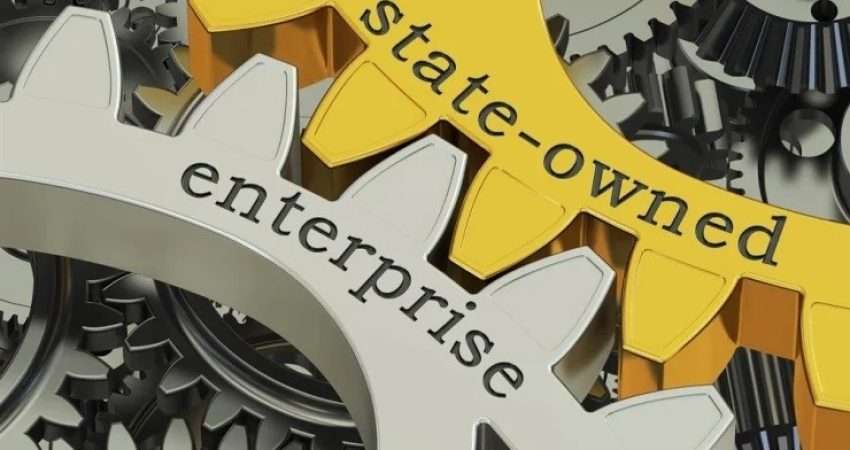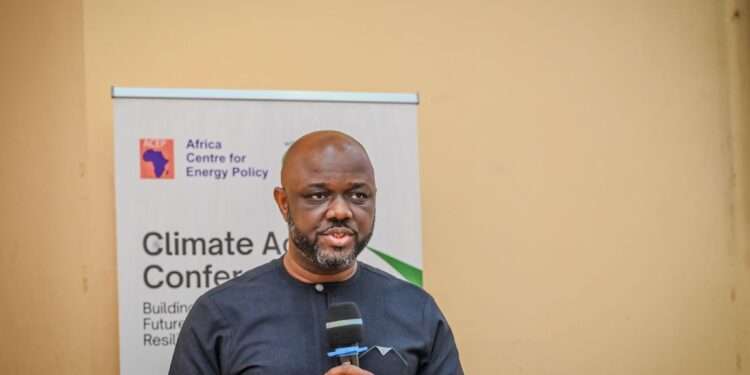Ghana’s state-owned enterprises (SOEs) have been losing massive amounts of money for over a decade, with financial inefficiencies and governance failures worsening the situation.
Economist and political risk analyst, Dr. Theo Acheampong, has expressed deep concern over what he describes as the systemic dysfunction of these critical institutions.
According to Dr. Acheampong, the financial troubles of Ghana’s SOEs have been evident for years, yet little has been done to address the core issues.
“Some of us raised alarm bells way back then, but as usual, those of us in the civic space shouted ourselves hoarse — the problems are deeply systemic and symptomatic of the country’s dysfunctional political economy where individuals without the requisite background and exposure are awarded these top SOE jobs and Board Roles.”
Dr. Theo Acheampong

SOEs are meant to drive economic growth and development by providing essential services in key sectors such as energy, transport, and finance.
However, instead of being economic drivers, they have become financial burdens, draining public resources and contributing to Ghana’s economic struggles.
Dr. Acheampong pointed to reports from The State Interests and Governance Authority (SIGA) and the Ministry of Finance (MoF), specifically the State Ownership Reports from 2016 to 2023, which provide clear evidence of the mismanagement and financial losses incurred by these entities.
He stressed that these reports expose the harsh reality of Ghana’s SOE landscape.
Need for Corporate Governance Reforms
Accordingly, Dr. Theo Acheampong stressed the need for immediate action to tackle the persistent governance challenges undermining the effectiveness of State-Owned Enterprises (SOEs).
He underscored that without decisive reforms, these issues would continue to hinder efficiency, accountability, and overall performance in the sector. “We cannot pretend to play the ostrich anymore – we gotta fix the deep corporate governance challenges at these SOEs.”
One of his proposed solutions is to introduce performance-based remuneration for Chief Executive Officers (CEOs) of SOEs.

He suggested that CEO salaries should be structured in a way that ties their earnings to performance metrics. “For starters, let the CEOs have a minimum pay and add-ons tied to meeting clear organizational KPIs (financial and operational ones),” he proposed.
Additionally, Dr. Acheampong called for a more competitive and transparent recruitment process for SOE leadership roles.
Instead of political appointments, he believes these roles should be publicly advertised, allowing the most qualified Ghanaians to apply.
“We can even go further by posting job ads for the commercially oriented SOEs, getting the best-qualified Ghanaians to apply, running these organizations, and remunerating them well [proper executive compensation].”
Dr. Theo Acheampong
One of the major reasons for the inefficiency of SOEs, according to Dr. Acheampong, is the political interference in their management.
Many of these enterprises are staffed with political appointees who lack the expertise needed to run large organizations effectively.
As a result, poor decision-making, corruption, and operational inefficiencies continue to cripple these institutions.

Ghana’s current economic climate makes it even more critical to address the issues plaguing SOEs.
The government is facing increased pressure to reduce debt, improve revenue generation, and manage its financial resources more effectively.
However, without tackling the mismanagement and governance failures in SOEs, achieving sustainable economic recovery will remain a challenge.
Dr. Acheampong’s remarks, therefore, highlight the urgency of the situation and the need for a comprehensive strategy to reform SOEs.
Stronger regulatory frameworks, increased transparency, and accountability in appointments, and performance-based incentives for executives are key steps in the right direction.
If left unaddressed, the financial strain caused by inefficient SOEs will continue to weigh heavily on Ghana’s economy.
It is up to policymakers, industry stakeholders, and the public to demand the necessary reforms to ensure these enterprises fulfill their mandate of driving national development rather than draining public funds.




















